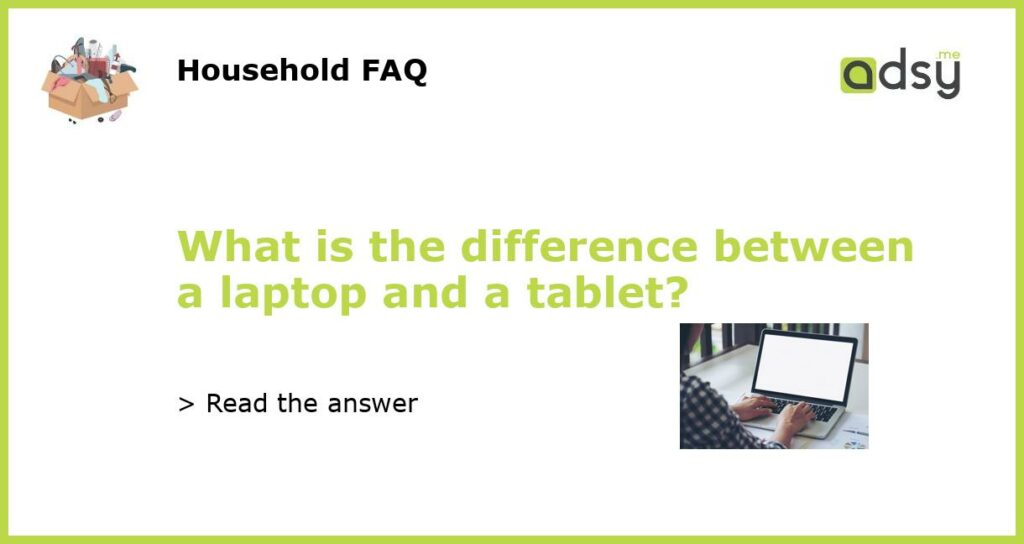The Distinctions Between a Laptop and a Tablet
The world that we live in today is highly digitized; hence, electronic gadgets such as computers, laptops, tablets, and smartphones are essential. Laptops and tablets are ubiquitous, but it could be confusing knowing the right one to choose based on the similarities. Although laptops and tablets perform specific tasks similarly, significant distinctions differentiate them. This article will discuss the distinctions between laptops and tablets, providing you with a better understanding of each gadget.
Physical Design
Laptops and tablets differ significantly in their physical designs. For laptops, the keyboard, touchpad or mouse, and the screen are combined in one unit. Tablets, on the other hand, are designed as portable touchscreen devices without a physical keyboard. Some tablets come with keyboard attachments that can be detached or attached to the tablet and used as a keyboard. The design of both devices plays a significant role in determining their functionality.
Functionality and Performance
In terms of functionality and performance, laptops are generally more powerful than tablets. Laptops are designed to complete more complex tasks than tablets; hence, they come with more powerful hardware such as processors, RAM, and storage. Tablets, on the other hand, are designed to run applications that do not require significant processing power, such as browsing the internet, watching movies, and playing mobile games. Although there are some tablets that come with more advanced hardware, they are still not comparable to laptops regarding performance.
Portability
Portability is a significant factor that differentiates laptops and tablets. While laptops can be relatively portable, they are relatively large in size compared to tablets. Tablets generally weigh less than laptops and can be fitted into small bags, making them easier to carry around. Due to the difference in size, laptops come with larger screens that are more comfortable to use for extended periods. Tablets, on the other hand, have smaller screens, making them ideal for short periods of use or entertainment purposes.
Operating Systems
A significant difference between laptops and tablets is the operating systems they run on. While laptops typically run on Windows, Mac OS, or Linux operating systems, tablets run on either Android or iOS. The operating systems on laptops are designed for multi-tasking and handling more complex tasks; hence they come with more comprehensive software for word processing, photo and video editing, and gaming. Operating systems on tablets, on the other hand, are designed to run simple applications that do not require significant processing power.
In conclusion, laptops and tablets are essential electronic gadgets for everyday use. Although they share some similarities in terms of functionality, their primary distinctions lie in physical design, functionality and performance, portability, and operating systems. Laptops are more powerful in terms of hardware and software, and they can perform more complex tasks than tablets. However, tablets are more portable and convenient for entertainment purposes. Ultimately, the right gadget to choose will depend on the intended use and personal preferences of the user.






